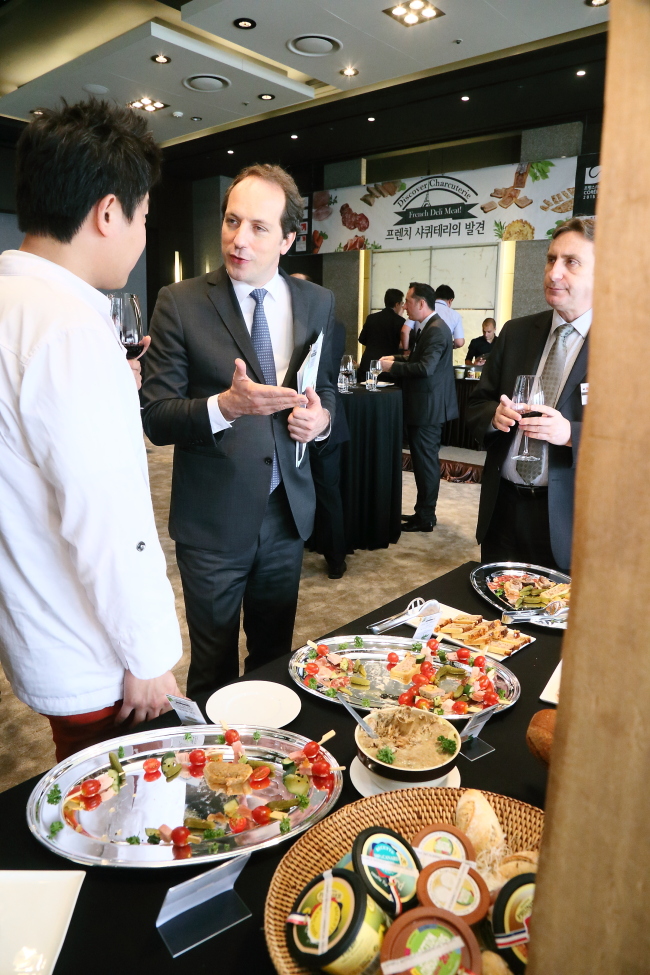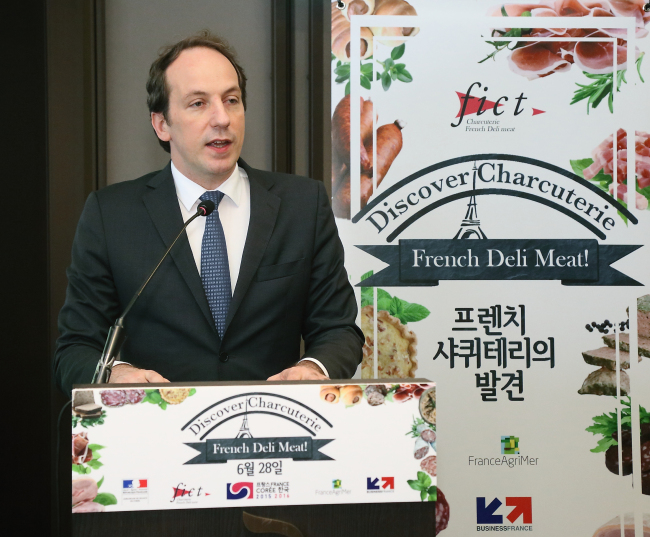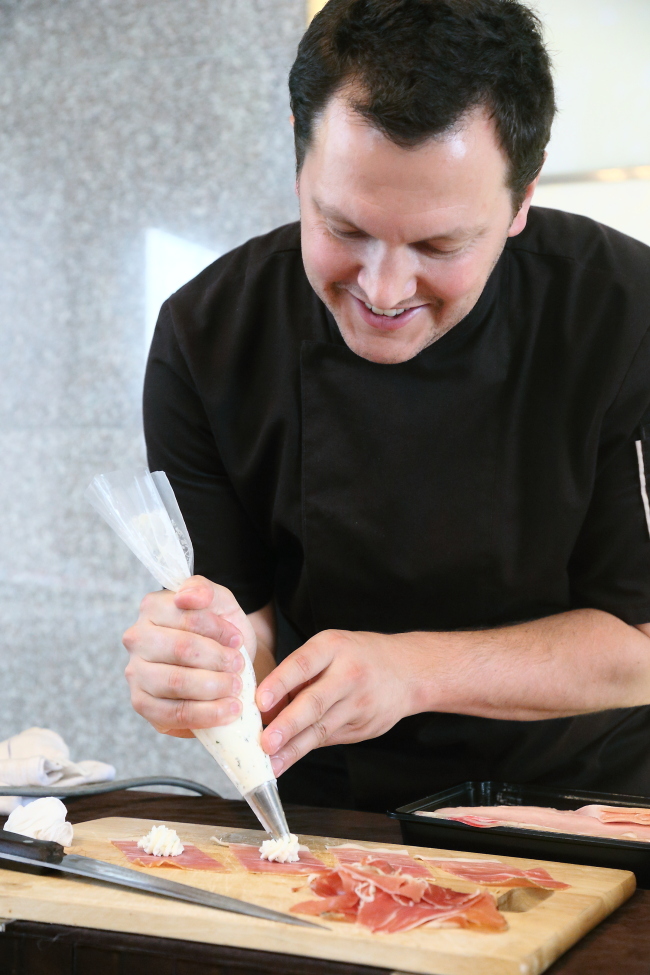For those craving unfranchised gastronomy, France’s “charcuterie” is bringing in homegrown cookery for a pleasant surprise.
The French Embassy hosted a series of events last week to promote the culinary art and science of charcuterie: preserved meat products like bacon, ham, sausage, terrines, galantines, ballotines, pates, and confit, primarily from pork.
Six companies -- assisted by the French Federation of Charcuterie Producers, France Gourmet and France AgriMer -- visited Korea to introduce their delicacies, which have been pickled and cured over centuries.
 |
French Ambassador Fabien Penone explains France’s charcuterie at a seminar on June 28 at the Plaza Hotel in Seoul. (French Embassy) |
 |
French Ambassador Fabien Penone explains France’s charcuterie at a seminar on June 28 at the Plaza Hotel in Seoul. (French Embassy) |
They showcased “jambon (ham),” “lardons (bacon),” “epaule (shoulder meat),” “pates (meat spread),” “saucisses (sausages),” “rillettes (potted meat),” “andouilles (sausage made of chitterlings),” “boudins blancs et noirs (black and white puddings)” and “charcuteries patissieres (meat pastries).”
“France, as one of the world’s leading producers and consumers of charcuterie, has a long tradition of excellence and creativity in this sector,” French Ambassador Fabien Penone said in a speech at a ceremony on June 28. “Our products are particularly diverse, produced across different regions of the country. Foreigners discover its importance in French cuisine during their personal and business trips to France.”
Noting charcuterie is still relatively unknown in Korea, he highlighted that French enterprises and authorities are striving to raise the cuisine’s profile here and deliver fresh new products through communication campaigns.
 |
The French Embassy hosted a series of events last week to promote the culinary art and science of charcuterie: preserved meat products like bacon, ham, sausage, terrines, galantines, ballotines, pates, and confit, primarily from pork. (French Embassy) |
 |
The French Embassy hosted a series of events last week to promote the culinary art and science of charcuterie: preserved meat products like bacon, ham, sausage, terrines, galantines, ballotines, pates, and confit, primarily from pork. (French Embassy) |
Originally developed to preserve meat prior to the advent of refrigeration, they are savored today for their earthy, sui generis flavors. Helping the globalization of French food, charcuterie has become increasingly popular among the world’s rising middle classes and connoisseurs.
Historians speculate ancient Romans were the first to regulate charcuterie’s trade, after it was imported from the Gauls in the first century AD. In the 15th century in France, local guilds started overseeing tradesmen in each city for production and sales.
In time, the guilds came to master diverse palates of cooked, dried and salted fruits and raw meat, enhancing preservation methods and enriching flavor.
The event at the Plaza Hotel was part of celebrations marking the 130th anniversary of diplomatic ties between France and Korea.
By Joel Lee (
joel@heraldcorp.com)











